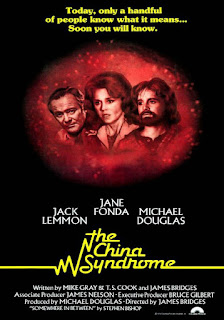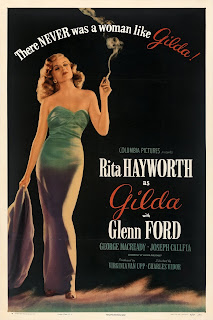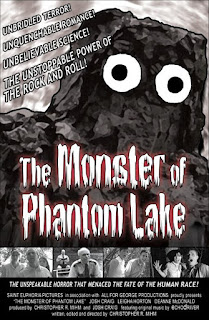Blood Red Planet (2000)
— MAYBE —
This is an obviously amateur sci-fi movie, about astronauts on a rescue mission to “the Bermuda Triangle of outer space,” where 25 ships have disappeared without a trace. It was shot on VHS, so it looks cheap, and cheap it is. The effects, acting, directing, costumes, and especially the script are all utterly do-it-yourself, but I’m a big fan of DIY, so I can deal.
The script is frankly ridiculous, though. A few of the actors aren’t bad, but the rest are, and the direction wanders in all directions. It’s a stupid movie telling a stupid story, with a clever line once in a while. The movie’s theme music is remarkably dull, almost entirely one note played over and over, but the music once the movie's underway is sometimes imaginative and appropriate. Some of the effects are low-key accomplishments, considering the era, the equipment, and the obviously primitive software they were working with. The props are simple silliness — a motorcycle helmet becomes a space helmet, a slide projector becomes the HAL-like KAL computer, etc. The monster is preposterous, but I’ll give it the benefit of the doubt and hope that preposterous is what they were trying for.
Blood Red Planet has its moments; not many, but some. A serious newscaster interrupts with a special news bulletin: “This just in: The Omega 1 has just exploded after lift-off from the moon base… which has also been destroyed!” None of it looks, sounds, or feels like a ‘real’ movie, but I respect the effort that went into it, and enjoyed Blood Red Planet.
Don’t mistake this for a good review, though. On a scale of one to ten, compared to other movies, I’d be hard-pressed to give it 1½. That’s not the right comparison, though, and on a scale of beer-fueled weekend what-the-hell projects, it’s a solid... MAYBE. Could've been a YES if it had a better script, or a BIG YES if it had a sense of humor.
By far the biggest and most inexplicable mistake here is that despite somehow getting a gorgeous woman to appear in this otherwise all-male, probably all-frat movie, and despite the miracle that Joette Krisiewicz is a reasonably good actress — far more believable than a few of the males with much bigger roles — she’s stupidly killed off midway through, leaving the rest of the movie as manly as certain bars in the Castro.
♦ ♦ ♦
— YES —
Dead serious drama of a TV news crew that happens to be touring a nuclear power plant for a fluff assignment, when something happens — an ‘incident’ says management, an ‘accident’ says the news crew. The movie is well put-together, undeniably engrossing once it gets underway, and it comes to a rousing but still worrisome finish.
I was ferociously opposed to nuclear power when this movie first came out, so this movie sang to me back then. Has it aged well? Better than I have, certainly — it’s still a kickass thriller. It’s also surprisingly fair and balanced about nuclear power, presenting its arguments rationally enough that its point, I think, isn’t so much that nuclear power is bad, as that it’s foolhardy to trust such facilities to penny-pinching corporate control.
It's directed by James Bridges, and this movie made him a favorite of mine. With Jane Fonda, Jack Lemmon, and Michael Douglas, and Wilford Brimley in a small but crucial supporting role. This was the first time I’d ever seen Brimley, and already he seems old and in need of intravenous oatmeal.
Guess I'm still opposed to nuclear power, though these days it's not in my top twenty issues. Wire in all the redundant safety systems you can think of, and redundancies to the redundancies, but it still seems like a damned fool and dangerous way to generate heat, steam, and finally electricity.
♦ ♦ ♦
Four Seasons Total Documentary (2021)
— MAYBE —
register, maybe pay NBC News • streaming free
This is MSNBC’s loudly-hyped documentary of the 2020 Four Seasons fiasco, where the Trump lie brigade wanted to book a bullshit press conference at the swanky Four Seasons Hotel in downtown Philadelphia, but instead called the media to Four Seasons Total Landscaping, a family-owned hedge-trimming and snowblowing company in the suburbs. The reality of what happened is beyond ridiculous, and I’d heard that the TV doc caught the frenzy nicely, but …
No. This is TV news, which is always shit.
Using special effects, Tweets are superimposed over the landscaping firm's cinderblock walls, matching the camera’s angle as our view swoops past, very clearly meant to look as though the tweets had been painted or glued there. There’s even a tweet shown on a billboard. But no, these are visual effects.
One of the landscaping guys explains that his phone rang twice that morning, and this is interspersed with footage of President Trump in the Oval Office making phone calls. But no, the call came from a staffer, not from Trump himself.
There’s a word for tricks like these: lies. They’re tiny lies, sure, but I’m the fuddy-duddy old-timer who still thinks journalism ought to always be about telling people facts not fiction, and truth not lies. Special effects are not facts. Deceptive editing is not facts. Such tactics should not be used in a news documentary.
Ignoring that, and ignoring the show's cutesy music, I’ll grant that it’s an amusing little mini-documentary (only 29 minutes). It’s more focused on the business, Four Seasons Total Landscaping, than the political shenanigans that brought Rudy Giuliani to stand in front of their garage door, but it's interesting to see how they responded to all the publicity. The landscaping firm is run by a lovable old dame and her son and his friend, and they’re all likable. I learned a few things and don’t regret watching this, but it’s like a better-than-average episode of Entertainment Tonight — and that’s not what major league journalism should look like.
But wait, there's more. When it ends, you’re invited to stay for interviews and updates, and what follows is exactly what you’d expect from TV news. There’s an annoying yuppie host, and I know the facts better than he does, which ought to be alarming because I don’t know the facts. It’s mostly piffle, with clips repeated from the first half hour, and agonizingly brief interviews — one or two sentences — with several participants.
Most tellingly, the post-show interviews are conducted via satellite, with guests' faces seen on screens mounted to the walls — but the walls are an MSNBC set that’s been dressed up to look like the walls of the landscaping company. More fakery, in other words.
Whatever this is, it's not my idea of journalism.
♦ ♦ ♦
— YES —
Rita Hayworth as … Gilda … with Glenn Ford. That’s the opening, and I wonder, has there been a movie made in this century that named the lead actress alone, before the title card, with her leading man second-billed?
Hayworth was the draw here, certainly. Ford was still a B-lister, but he gets most of the screen and story time, playing a charming rogue and card shark who says women and gambling don’t mix. He and Hayworth have a past together, but she's now married to Ford’s boss at the casino, which ensures drama. The whole thing crackles with arch dialogue, delicate situations, and criminal and political intrigue. Rita Hayworth pours everything into her performance, and she had a lot to pour.
The story is dizzy and near-meaningless, and I still don’t understand why the washroom attendant can’t be fired, but such details don’t matter — Gilda is widely and correctly hailed as one of the great noir movies. She’s a grand old dame.
♦ ♦ ♦
The Incredible Petrified World (1959)
— NO —
Dull science-fiction, made worse by muffled/garbled sound that swallows 5-10% of the dialogue. It opens with six minutes of educational narration about critters that live in the various depths of the ocean, and there’s obvious stock footage mixed in throughout the movie.
Phyllis Coates is kinda fun as a ferocious professional — I think she’s a photographer? — but John Carradine gets top billing, as a scientist sending four people down to the ocean floor in a diving bell. I've always found Carradine annoying, and here he’s (surprise!) annoying, but not as annoying as he was in Stagecoach. On the bright side, his appearance is basically a cameo — he’s in this movie for about ten minutes total.
The movie is a mess, though — dated and dumb.
♦ ♦ ♦
— BIG YES —
By coincidence, I’m reviewing this the same week as another amateur movie, Blood Red Planet, but they don’t belong on the same page. If you’ve seen that movie or read that review, have a saltine cracker to cleanse your palate.
Sure, they’re both no-budget / no-studio / absolutely homemade movies, but BRP mocks sci-fi, and it’s only enjoyable in a “What were they thinking?” sense.
The Monster of Phantom Lake is a genuine movie, and genuine science-fiction — of the schlock variety, certainly, but it isn’t mocking the sci-fi or the schlock; it’s living in it. Monster sincerely tries to be a low-budget sci-fi film your grandparents might’ve seen at the drive-in 60 years ago, and it succeeds. Grandma and Grandpa would’ve loved it, and I loved it, too.
It was made by the maestro of backyard moviemaking, Christopher R Mihm. For 15+ years, Mihm has been making feature-length films, mostly science-fiction crafted to look like B-movies of the 1950s, and all his movies are set in the same ‘Mihmiverse’. I’ve seen only a few of Mihm’s films, sadly not all of them, but I intend to rectify my lack-of-Mihm over the next few months.
This was Mihm’s first film, so let’s “run it through the evolutiscopic spectronalyzer.” Something strange is going on down by Phantom Lake. There’s a starched-shirt professor who’s all about the science and only about the science, and a pretty grad student who’s in love with him. There are five teenage friends — two couples and a fifth wheel misfit (you can tell she’s a misfit just by her glasses) — and they're all roasting weenies and sharing a scary story around a campfire.
If you’ve ever seen a golden-era Kormanesque sci-fi flick, you can probably guess what happens, but there are smart surprises and clever laughs along the way. The flirting between the professor and his student is intentionally corny. The monster is ludicrous, but no more so than most 1950s movie monsters. The ladies scream. The gents argue. The monster walks out of the lake. A few innuendos in the dialogue and “I have a bad feeling about this” are the only clues that this was made in the 21st century on a hobbyist’s budget.
There’s even an important moral to the story — please, kids, don’t dump atomic waste by the barrel into the lake. And there’s also a second lesson to be learned: “Hollywood magic” is mostly a myth, because it absolutely does not take millions of dollars to make an enjoyable movie from scratch. Only one key ingredient is required, and that’s someone who lives and breathes it and wants to make it magic — someone like Mr Mihm.
♦ ♦ ♦
Obit (2016)
— MAYBE —
“I don’t know if you would be automatically inclined to read the obituary of the bass player on ‘Rock Around the Clock’, and it’s therefore my responsibility to try to persuade you to do so.”
This is a documentary about the process of writing obituaries at the New York Times. It’s interesting, but frustrating, because of the movie's breadth — instead of seeing a few obits assembled from scratch, we see bits and pieces of dozens, perhaps hundreds, and it’s more about the scramble than the eggs.
The most interesting character is Jeff Roth, the only guy who knows what’s in which filing cabinet in the Times’ ‘morgue’, the enormous cluttered room filled with hard-copy — paper — clippings and photos of everyone who’s ever been anyone. Roth has been working there since 1993, looks a little morgueish himself, and even he gets lost in the labyrinth.
The movie's best story is all too brief, a remembrance of ‘that time the Times got it wrong’, and ran an obituary for someone who wasn’t dead. That’s why, ever since, every obituary in the paper includes confirmation of the death, from someone in the family, or a doctor, or a friend or an official.
A big problem with making a movie about writing is that watching someone write is inherently boring. Here we watch obituary writers write and type, stare off into space thinking, and sometimes talk on the phone, sometimes talk to the camera. Even as a guy who imagines himself a writer, that’s tedious to look at.
I am also more than slightly bothered that the movie’s obituary-writers all work at the New York Times. I don’t know it, but I wouldn’t be surprised if the movie was funded by the Times. The paper comes off great, but all the obit writers are white, and all the people who merit a Times obituary are of a certain ‘Times’ pedigree, so it’s a narrow view of writing obituaries for a narrow subset of the dead.
Like Charles Foster Kane, I’ve always thought it might be fun to run a newspaper, and if I did, the obituaries would be different from what’s here. We’d include all these dead newsmakers and celebrities, of course, but I’d also want at least a daily sampling of ordinary people who’d lived ordinary lives. The woman who worked at the grocery store for 45 years deserves an obituary, and so does the Language Arts teacher, the woman who never worked but raised eleven kids, and the panhandler who froze to death under an overpass.
12/5/2021





The first thing I have to say is that your reviews are well-written, well-reasoned, I wouldn't argue even when I disagree but usually I don't disagree.
ReplyDeleteTHANK YOU for Monster at Phantom Lake, I had never heard of it, you talked me into it, so I just watched it and yes yes yes - so much fun! It reminded me of Armageddon strangely, not that they have anything in common but that they're such opposites, no telling how many millions of dollars was spent/wasted making Armageddon, and this little "backyard movie" was ten times as fun.
Just for showing me Christopher R Mimm I promise I would renew my subscription if you had subscriptions.
Glad you enjoyed The Monster of Phantom Lake. Armageddon was definitely crap, and you, dear Henshaw, are definitely *not*.
DeleteThank you for that MSNBC love letter to real journalism - I couldn't agree more. Also everything from the Mihmiverse is wonderful.
ReplyDelete